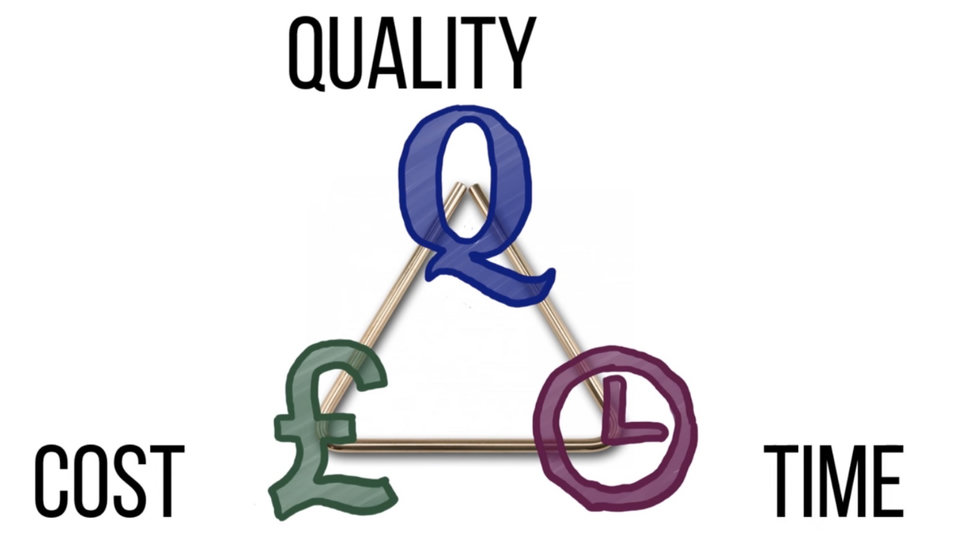
The Project Management Triangle

A triangle of time, quality and cost. it’s an indicator that these three parameters are interconnected. You can fix one or two of them, but not three.
The triple constraint
- Cheap and fast: the quality will suffer.
- Cheap and good: it will take more time.
- Fast and good: it will push the price up.
Waterfall vs Agile
In software methodologies, you can adapt this idea by changing quality to scope:

Waterfall
In waterfall projects, the scope is fixed, while the time and money will be more variable. Depending if it’s more important finishing on time or on budget.
Agile
On the other hand, in an agile environment we usually work on a few weeks’ iterations, so this is the fix part: the time, in order to deliver value as soon as possible, and so get feedback and recalibrate again and again.
The costs in a software team are also fixed by the people that belong to it.
Time is fixed, cost is fixed, so by the rule of the iron triangle, the scope must be variable.
An agile team cannot predict the scope of their work in one-year project, however, they don’t need to. Their focus should be on deliver constantly value as much as possible, or at least at the end of every iteration, reflecting their learnings and recalibrating their priorities again and again.
As you can see, one funny fact is that the waterfall and agile share an inverted triangle with their fixed and variables parameters. Really interesting indeed.
